The remote UK community living off-grid
- Published
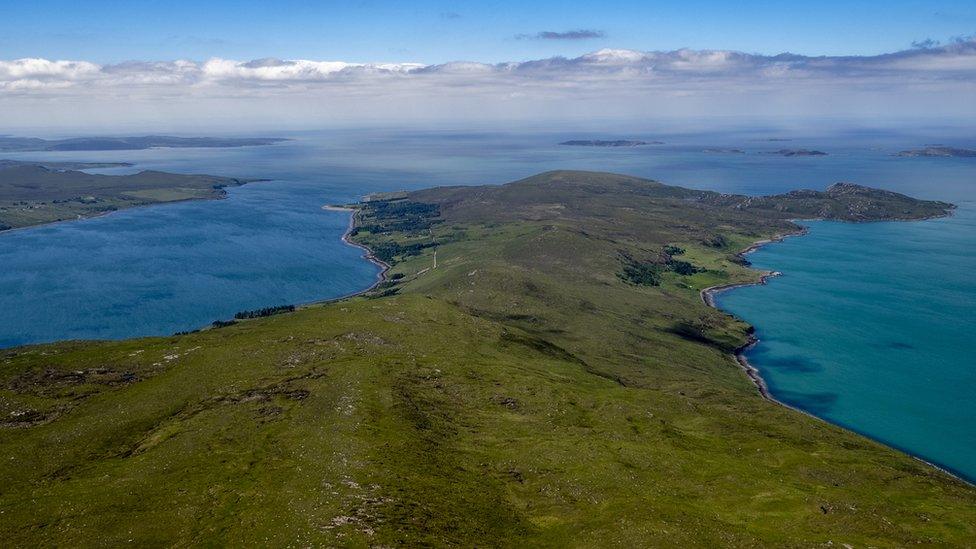
On a remote peninsula in the north-west Highlands of Scotland is the small off-grid community of Scoraig.
Accessible only by boat or a five-mile walk, the residents of Scoraig live in relative isolation, partly powering their homes and school with wind power. Among the inhabitants are crofters with cattle and sheep, a violin maker, a Russian translator, volunteers and a part-time postal worker.
Earlier this year, photographer Ed Gold lived alongside the community, documenting people's lives and exploring what drove them to move to this remote location.

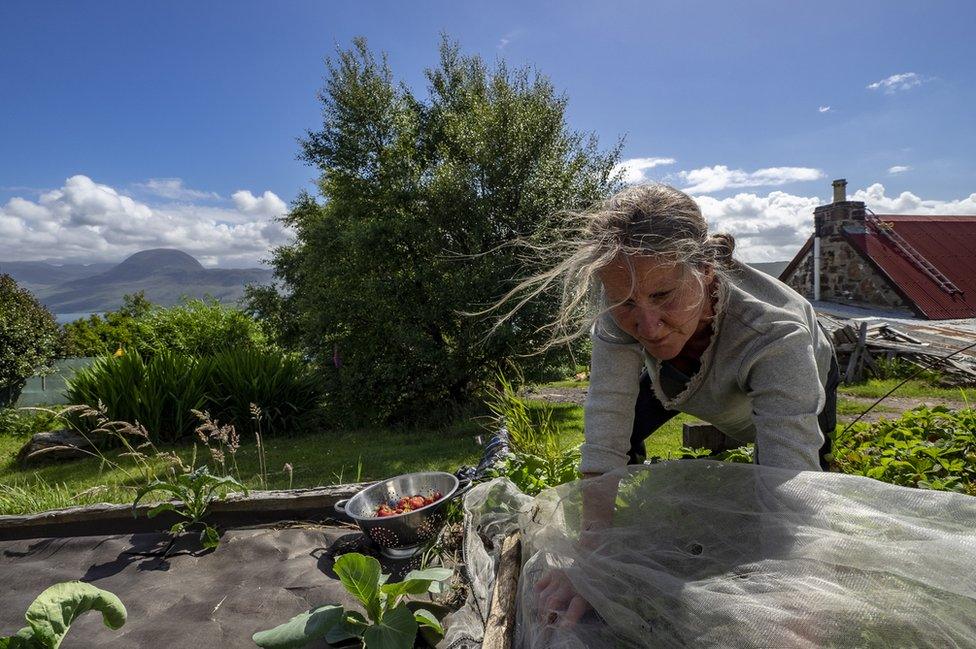
Lisa, 54
"I have been here 23 years. I don't think it is very remote really in the sense that people think about remoteness - but its inaccessibility, which I think is appealing.
"It's by no means idealistic and it has its own hardships of the wind and the rain.
"You are exposed to the elements - but that's good also as you are aware of what the weather is doing all the time and you're very much in touch with nature and the elements and life.
"We're an ageing population but I guess the bulk of us are between 40 and 65.
"There are not so many people that are younger than us, apart from the kids obviously.
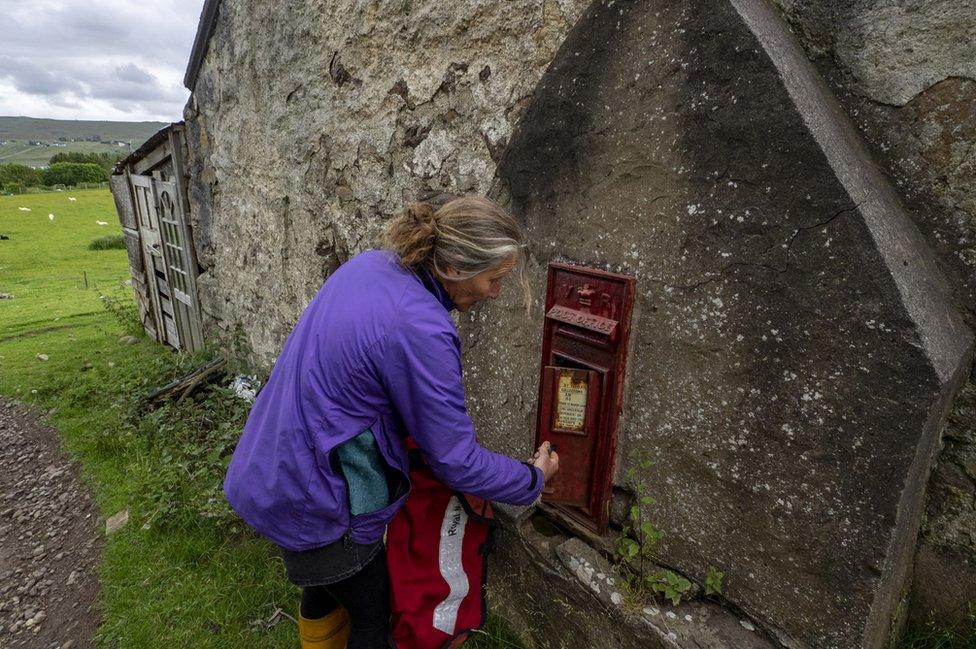
"I am the post-person three days a week, sub-contracted by the Royal Mail.
"I am responsible for everybody's important post and for transporting it across the loch as dryly and as safely as possible.
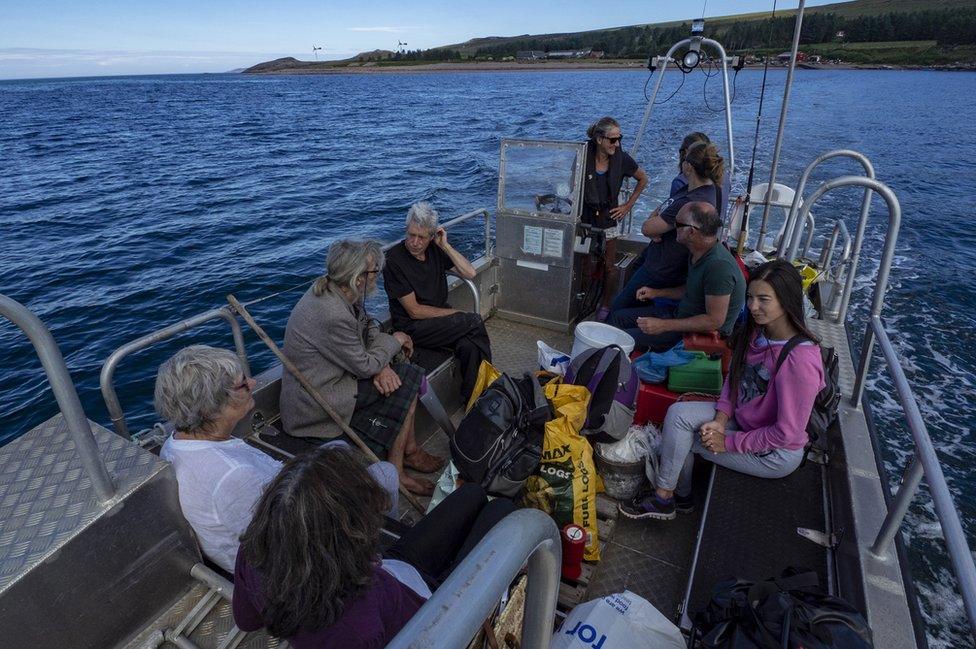
"I have a sea-taxi business, which runs a regular sea-ferry service, but a lot of people have their own boat and there is also a communal boat."

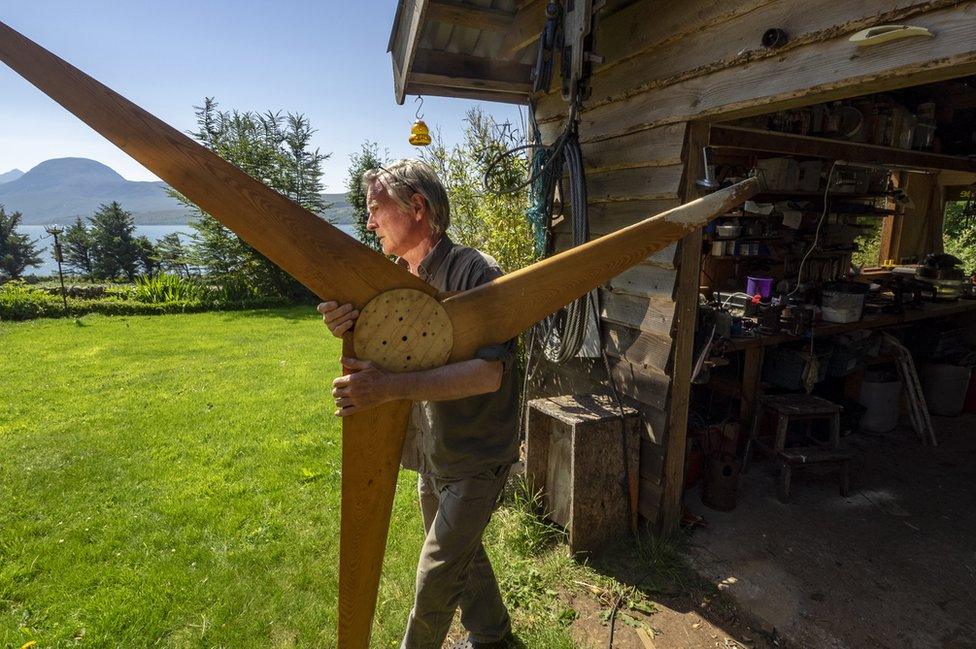
Hugh, 65
"I came here in 1975. I was brought up in Edinburgh and my background is in maths and physics.
"When I first came to live here, we didn't have electricity in the first few years.
"Wind seemed like an obvious way to make power and was a very exciting way to produce renewable energy.
"I was active earlier than a lot of others with wind power.
"There was a time when if you typed "wind power" into Google, my webpage was on the first page that came up - but those days are long gone.
"Through the internet, I have a large international network of design enthusiasts that follow, like and continue to use my design approach and teaching courses.
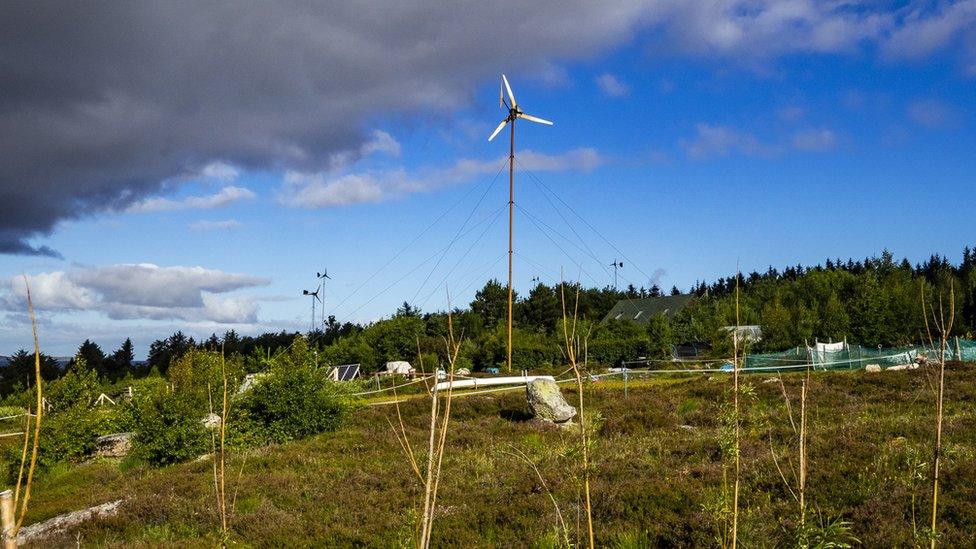
"I live here because it is very beautiful and I like the off-grid lifestyle.
"It's not about moral superiority - it's more to do with having more control over your own hands-on environment.
"It's attractive to me to grow my own veg and make my own power rather than be part of a big machine."

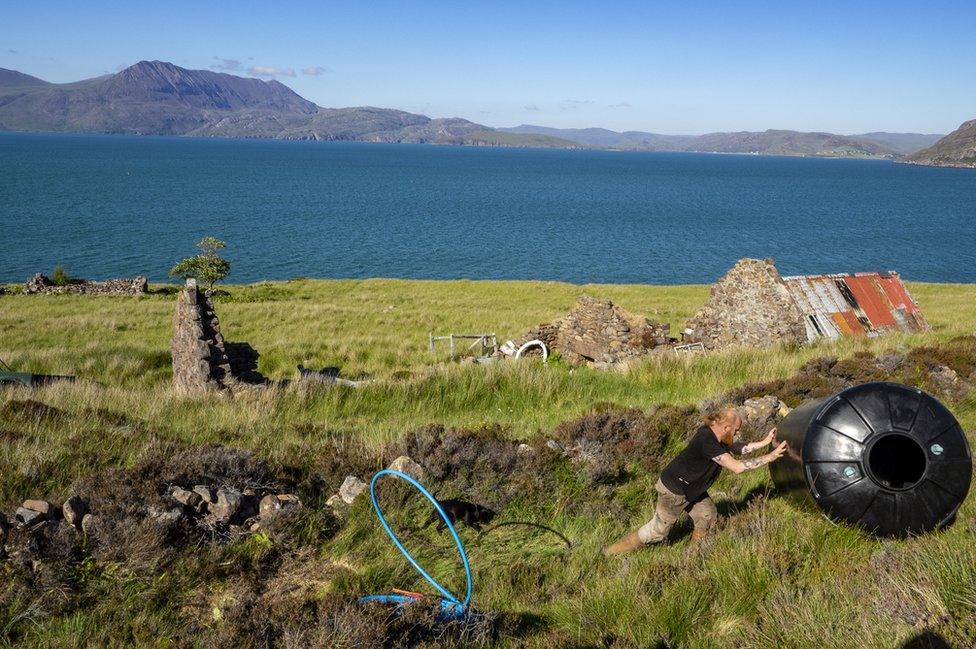
Luke, 36
"I grew up on the Isle of Wight and didn't leave until I was 17.
"After my apprenticeship, I built aluminium catamarans for offshore wind farms and large blades for wind turbines - but I was after something that was more manageable that was easier to build for myself.
"A friend of mine stumbled across this place.
"He was travelling across Ireland and Scotland and came across Hugh's name and that he was building windmills.
"So that was how I found out about here and it inspired me.
"We also used to come up to Scotland on holiday although we only moved four years ago."
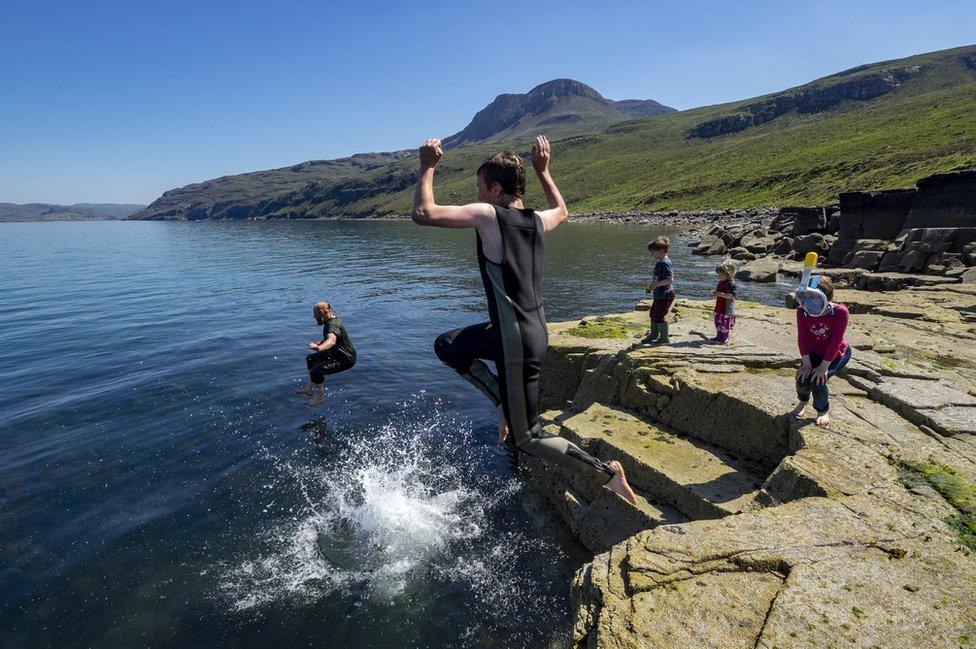
"It was good for us to move up here - no regrets really.
"The biggest downside is the high school being in Ullapool, so the kids will have to go and stay away all week and that will be difficult for us as we are a close family.
"As the children get older we want them to have the independence to build their own dwellings here.
"They might all want to move away and do their own thing - but it is a great stepping stone to have their own land and it's a big achievement from a young age."

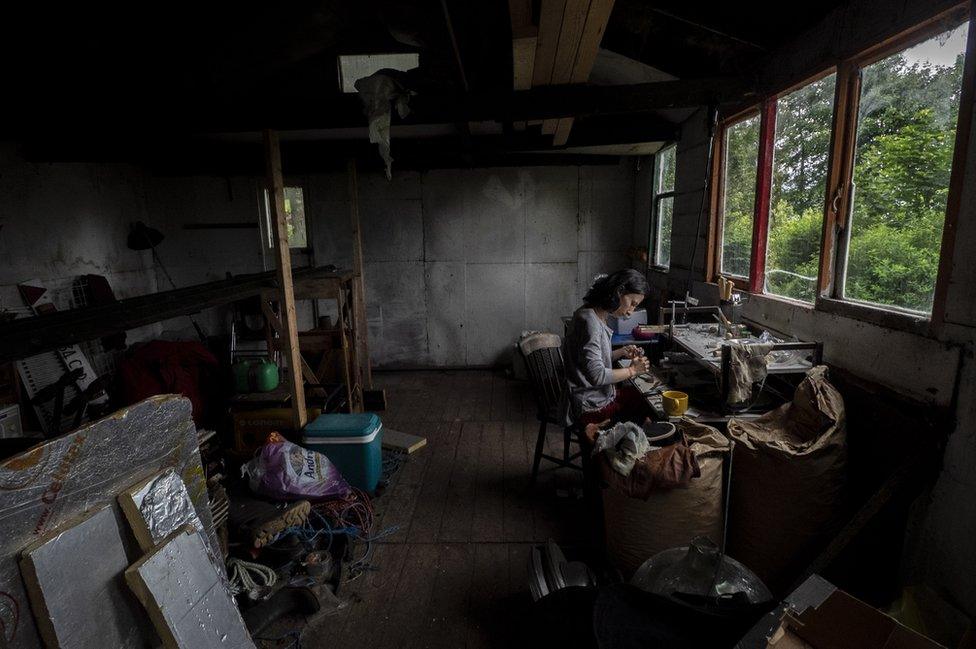
Chisa, 28
"If you speak to anybody here, they will all say that they are getting away from the value system that tells you you ought to be this way or that way, to be valued by your peers or whatever it is which doesn't resonate with everybody.
"They are trying to create their own idea of utopia.
"I'm here for more selfish reasons - I don't want to be surrounded by other people's judgements.
"I have now been here for five years. I came here as a couple, with our son, but we have now split up but still both live here.
"Every year, I go back to Russia and leave my son with my ex.
"I love it because I enjoy the ballet I can do there and I prefer the mentality, the toughness and resilience to change.
"Russians have an ability to withstand anything."

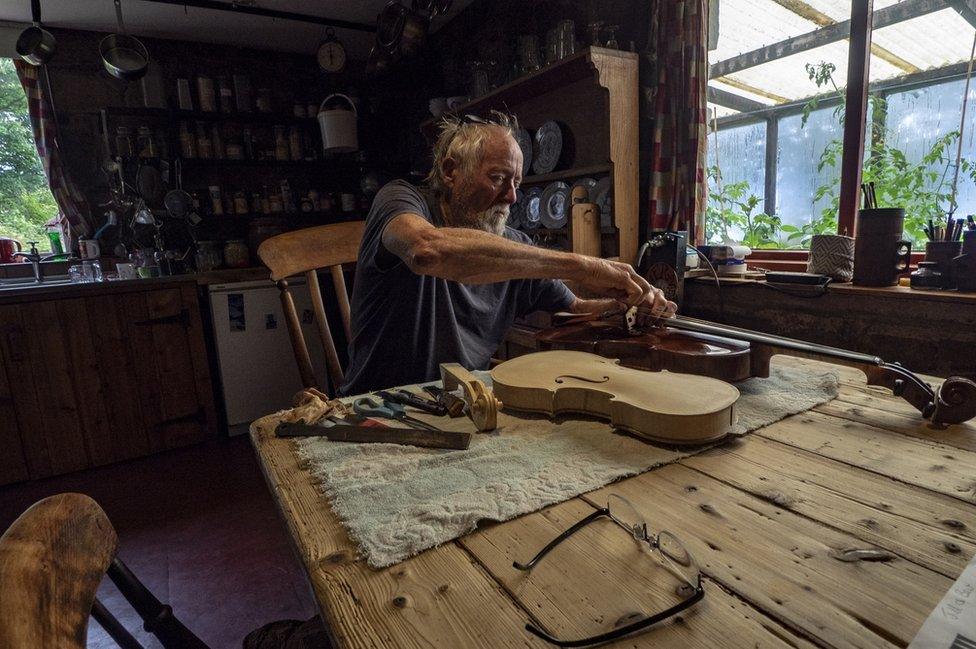
Bev, 79
"I was living in rural Northants, a nine-to-five scientist working for an electronics company in a laboratory.
"My wife, Gill, and I came up here for a holiday and we got hooked on the idea of living here.
"For one thing, I'd always wanted to build my own house and Gill liked the idea as there was a good primary school here for our three children.
"It was much more difficult to get here in those days, lots of single track roads and we didn't have reliable motors on our boats and only one telephone box and no mobile phones.
"When we had visitors, they'd write a letter to us and we'd tell them to drive on to the pier in their car and we'd look out for them with our binoculars.
"I got a job as the part time postman when we moved up here and did that for eight years, by which time I had got a reputation as a violin maker so I gave up the post.
"Most people go to a violin school - but I had a young family at the time, so I couldn't afford that.
"I taught myself from books and other makers - I used to go to exhibitions and competitions.
"I won a national violin-making competition in 1986 that gave my career a boost.
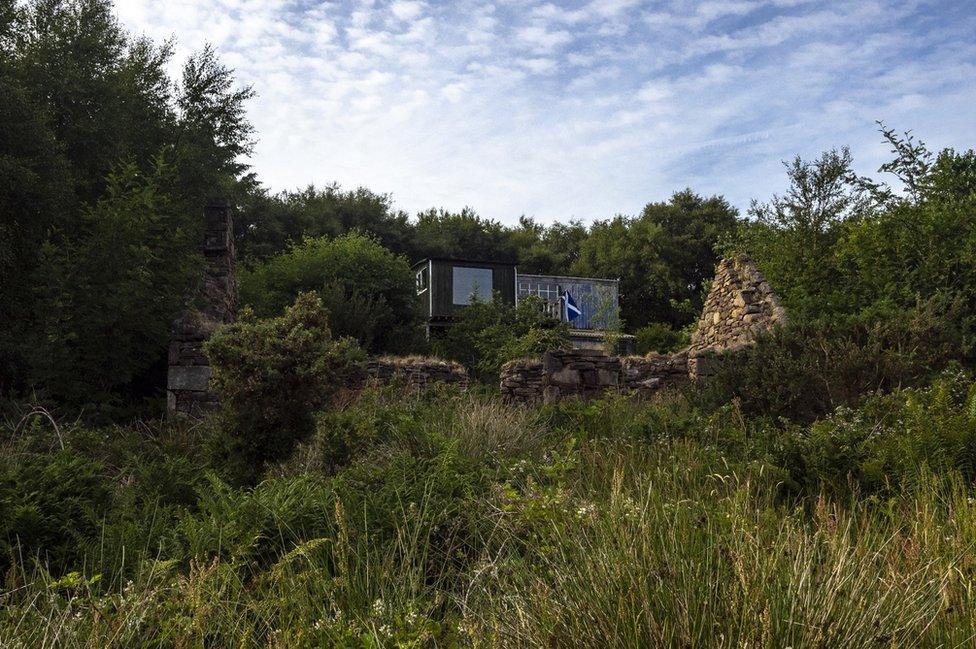
"The census records in 1871 say there was over 380 people here, all Gaelic speakers.
"You can just see how many ruins there are around here and each one would have been supporting a large family.
"It was worrying a few years ago when the primary school population went down to two but now it is seven and a lot of babies are in the pipeline too."

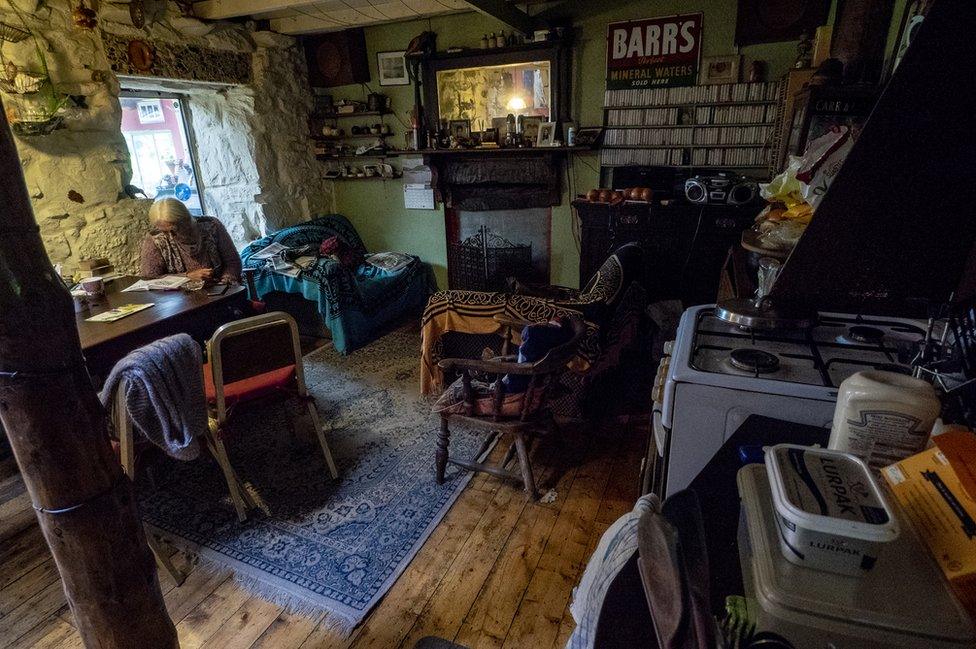
Aggie, 65
"The first time I came here, it just felt like home to me. It was November 1975.
"It worried me slightly that we moved here as I cannot swim and I had young children.
"We needed somewhere to live and it wasn't enough to put me off as we had the option to walk in and out as well.
"I like living here because I like to know where everything comes from, to know myself what the situation is with my electricity and what to do when it goes wrong and the same goes for the water too.
"I think we were very lucky to have Hugh come here and do his windmills.
"By now, I guess, solar would have come in if wind hadn't - and we were just relying on Tilley lamps.
"Everybody expects washing machines now here and everybody has one apart from me. I'm the last person washing by hand here."
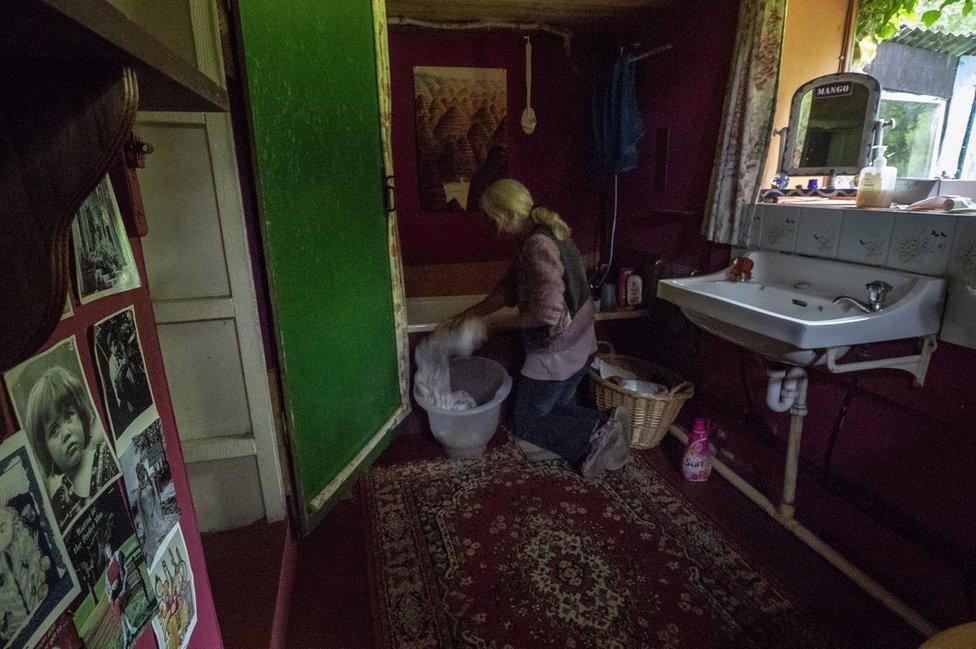

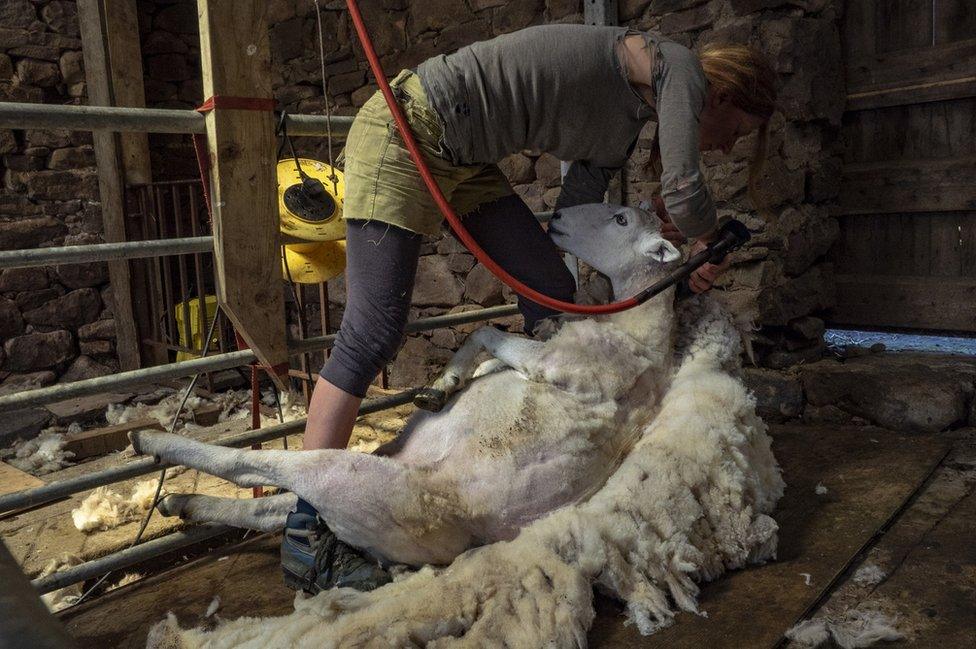
Natalie, 37
"I've had five visits here now as I'm interested in communities.
"Some sailors I met on Shetland called me a drifter and I quite liked that.
"Somebody wrote a song about me called Natalie the Nomad. It's what I do - I just drift along with what's happening.
"I think it would be easier for my parents if I lived an ordinary life - they struggle and they worry. But I have never met anyone who gives me a hard time.
"People try to get me into the ordinary - it's hard for people to understand that I don't want a job or to pay the price for what comes with it.
"Generally, if you have a job you are part of the monetary system. I do spend money - but it's a choice.
"I mean, when do you ever really have to spend money? You can always say no. What do I really have to do in life, except breathing?"

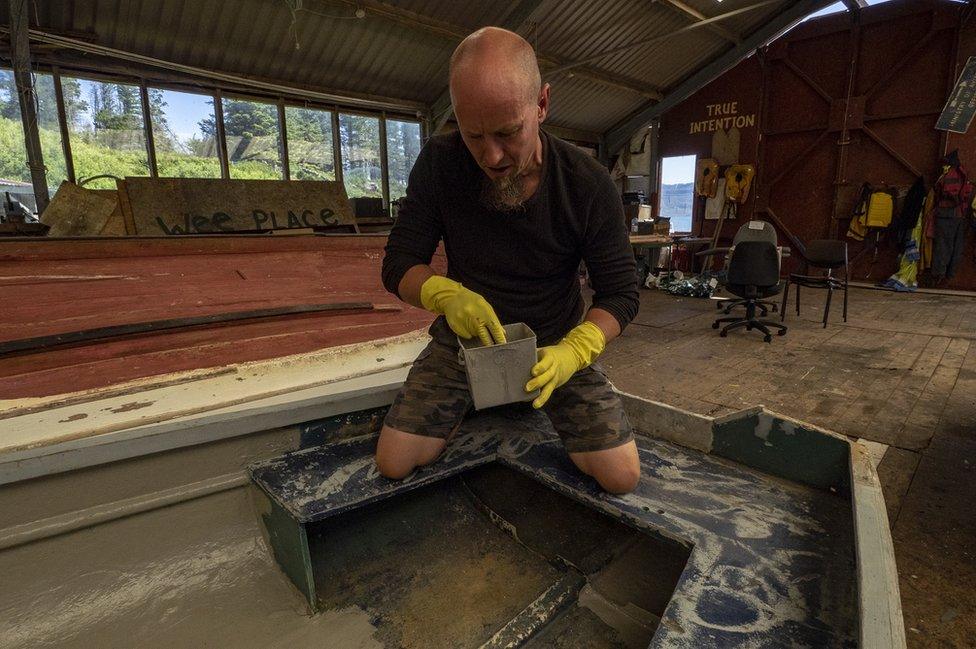
Dale, 47
"I was fed up with working in an office all day looking at a screen and having to pay to go to a gym to keep fit.
"I was fed up with all the people - it would take me 40 minutes to drive seven miles to get into work.
"We could have moved not so far away but I had been to Scotland a few times and fancied it.
"There is a proper sense of community here, which I think is lacking in other parts of the country.
"Everybody knows everybody and everybody helps each other out.
"It's the environmental thing, where you can live from solar and wind power and you don't need coal and nuclear power.
"And because you know what you are consuming, where your water comes from and your power, you are always going to be environmentally friendly.
"I used to preach about environmental stuff and then go home and put my 48in flat-screen TV on - but here, you can really live it."